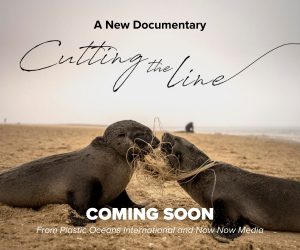Comedy as a voice for conservation
It happens. You’re sitting in the dark recesses of your living room and you hear it … “in the arms of the angel, far away from here” … it’s that sad puppy PSA with Sarah McLachlan. It’s not that you don’t like it – it’s powerful and enlightening. It’s just that you’ve seen it so many times and cried a little. Now you just feel bad and guilty.
Academic studies, Ad Councils, marketing strategists, and Bollywood have published on the benefits of using humor in Public Service Announcements. Taking the PSA model a little further to sketch comedy, conservation can be the thru line or under current within the comedy.
With sketch, the goal is to laugh and walk away with a seed planted in your brain. With a PSA, the goal is to educate; you get to laugh while you learn but, you know you’re learning. Using comedy sketches to float a message is a mind ninja if done well.

Environmentalism campaigns are largely ‘shame’ based and rightly so– humans are the problem. But shaming humans into action can be tricky as well. Using both humor and shame can be the key to broader audiences in the conservation realm.
Conservationists already get it and know what to do. The average person may not watch the film A Plastic Ocean after the daily grind and the kids are down; they don’t want the proverbial weight. How do we reach those people?
If humor is used as a marketing strategy, it can bring in new blood to the conservation cause and be a powerful, pleasant reminder, to “be better.” It’s shareable and easily digestible content. You can watch it at work without getting choked up. The factual content will always be the foundation and will always be there for new and current members. Humor and satire is not for the choir; it’s the initiation into the choir.
Humor also takes the intimidation out of the ‘shame spiral’ that happens when we look at ourselves and what we’re doing to the planet.

The whacky cast from an upcoming series where contestants compete to go 30 days with no Single use plastic.
It’s a brutal thing to become “aware”’; do you remember when you woke up to plastic use? Conservation Comedy exists to gently lead folks into the sadness well. Once you take the red pill, you can’t go back in the box. And that benefits everyone.
And frankly, there needs to be jokes about things people don’t understand. We need to laugh at ourselves sometimes. I hope to see more ‘outside of the box’ educational tools- because we need it. The earth needs it. For me, this is my calling. I hope to hear your ideas as well. If you have a funny idea to help spread the message, hit me up. Thanks for watching.
Sara Newton is a force of nature. She has travelled the world and has had a career track that most wouldn’t believe. She is the writer, director, and producer of “Big Litter Ocean”, a mockumentary that takes a satirical and dry-witted look at the problem of plastic pollution in our oceans. Sara is now leading the “Conservation Comedy” campaign. Click HERE to read our Q&A with Sara!

